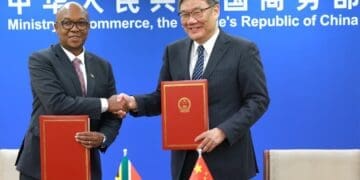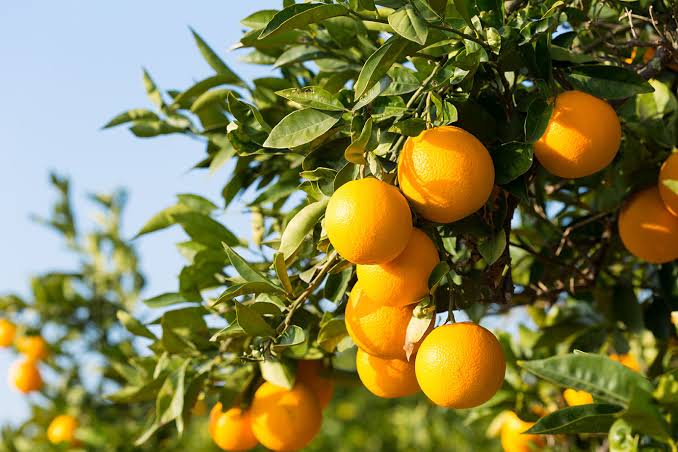Anxiety is rippling through the orchards of the Western and Northern Cape as the United States raised tariffs on South African products from 10% to 30%.
The two provinces export about seven million cartons of citrus to the US annually, and industry leaders warned that most of this fruit could be left unsold because of the impact of the hike at the height of the 2025 export season.
“This is one of great anxiety for the citrus growers in the Western and Northern Cape,” said Dr Boitshoko Ntshabele, who is the CEO of the Citrus Growers’ Association (CGA).
“Should we not be able to secure a favourable trade deal, or the concession for fresh produce, local job losses before the next season will be a certainty.”
This week, the South African government submitted a revised trade proposal to the US, aimed at protecting industries.
The CGA has formally asked President Cyril Ramaphosa to urgently facilitate an extension of the 10% tariff.
This would allow time for negotiations towards a mutually beneficial agreement.
If a general extension was impossible, they were calling for a specific exception for seasonal fresh produce.
Unlike other trade products, citrus is highly perishable and cannot be stored for long periods.
“South African citrus growers do not pose a threat to US growers or jobs,” Ntshabele added.
“Our produce sustains demand when local US citrus is out of season, benefiting US consumers. Citrus as a source of nutrition also helps to keep America healthy.”
For communities like Citrusdal in the Cederberg Municipality, the stakes are high.
CGA chairperson and Citrusdal grower Gerrit van der Merwe said the impact would be felt across the community.
“I am very worried about the effect the tariffs will have on our town and the wider Cederberg municipality,” he said.
“Citrus forms the economic heart of the area. Not just farmers and farm workers will feel the impact, but local businesses and even the funding of social support programmes will be affected.”
He warned that a sustained 30% tariff would stifle future growth and “lead to the eventual destruction of between 500 and 1000 hectares that would simply become unprofitable”.
The revised proposal to the US, submitted on 12 August, builds on earlier offers from May and June and outlines a five-pronged strategy: enhancing diplomatic engagement with the US, exploring export diversification, providing economic support to affected industries, strengthening trade defences and promoting local consumption of citrus.
Trade, Industry and Competition Minister Parks Tau and his agricultural counterpart, John Steenhuisen, confirmed the submission, stressing the government’s commitment to securing a favourable outcome for exporters and workers.
The CGA noted that while market diversification was important, citrus was grown for designated markets with strict plant health specifications.
Misguided redirection could depress prices in alternative markets and harm the broader industry.
The CGA’s letter to the president stressed that the sector has the potential to create 100,000 additional jobs by 2032 if existing markets such as the US, China, India and the European Union continue to expand.
An Export Support Desk has in the meantime been set up to help affected companies identify alternative markets.
While South Africa awaits answers on its revised proposals, industry leaders are urging the government to use high-level trade diplomacy to protect market access and safeguard rural livelihoods.
“The social fabric of some rural towns in the Western and Northern Cape is being threatened,” Van de Merwe stressed.

































































